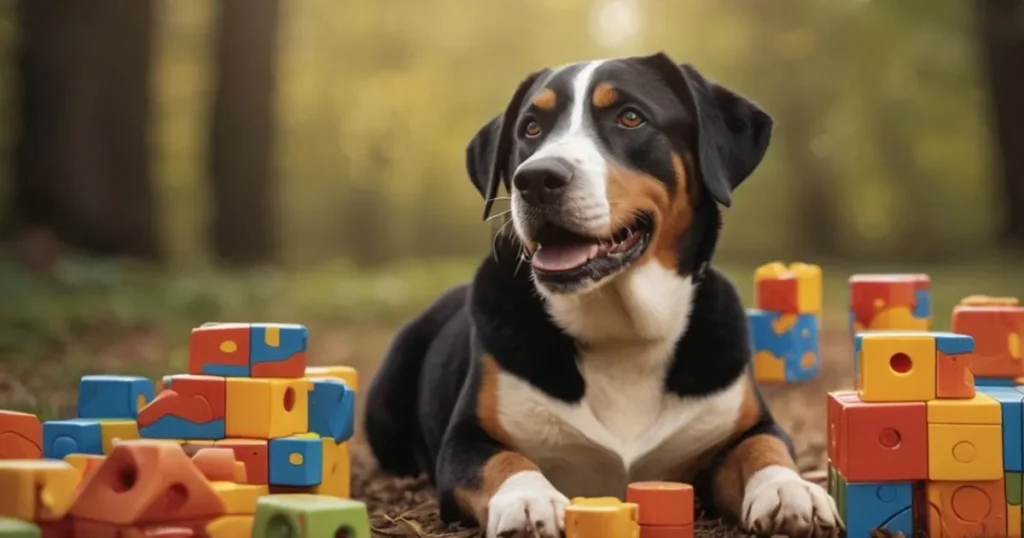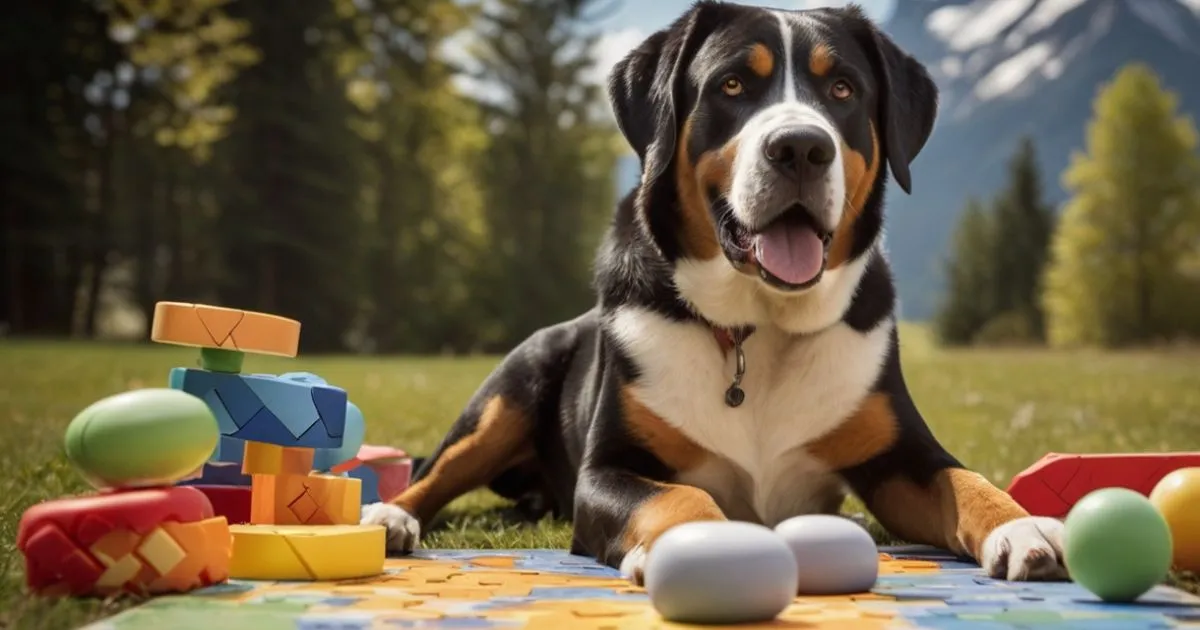Essential Health Tips and Care Advice for Your Greater Swiss Mountain Dog
The Greater Swiss Mountain Dog is a loyal and hardworking companion, known for its affectionate nature and versatility. Whether pulling carts, hiking alongside you, or simply curling up at your feet, this gentle giant thrives with proper care and attention. Ensuring their health and happiness requires a well-rounded approach, from diet and grooming to exercise and preventive healthcare.
Table of Contents
If you’ve welcomed a Swissy into your home or are considering it this guide will walk you through everything you need to know about keeping them healthy, strong, and full of life.
Getting to Know the Greater Swiss Mountain Dog
A Glimpse into Their Heritage
The Greater Swiss Mountain Dog has a long and fascinating history. Originating in Switzerland, these dogs were bred to work on farms, pulling heavy loads and guarding livestock. Their muscular build and dependable temperament made them indispensable to Swiss farmers.
While they share similarities with their cousin, the Bernese Mountain Dog, Swissies stand out with their short, dense coat and rugged endurance. If you’re trying to decide between the two, a quick search for “Swiss Mountain Dog vs. A comparison between the Bernese Mountain Dog and the Swissy shows that Swissies are typically simpler to groom due to their shorter coat.
Key Health Tips for Greater Swiss Mountain Dogs
Building a Balanced Diet for Your Swissy
A balanced diet is essential for maintaining your dog’s overall health and well-being. A balanced diet with proteins, healthy fats, carbohydrates, and key nutrients supports energy, growth, a shiny coat, and their overall well-being. A diet tailored to their size and activity level ensures they stay fit and energetic throughout their life.
What Should You Feed Your Swissy?
- Protein: Helps build and repair muscles. Look for high-quality sources like chicken, turkey, beef, or fish.
- Healthy Fats: Essential for energy and a shiny coat. Foods rich in Omega-3 and Omega-6 fatty acids are ideal.
- Carbohydrates: Provide sustained energy. Opt for whole grains like brown rice or sweet potatoes.
- Vitamins and Minerals: Support overall health. Include fruits, vegetables, and fortified dog food to meet their needs.
Feeding Guidelines
- Puppies: Feed 3-4 smaller meals per day to support their rapid growth.
- Adult Dogs: Switch to 2 meals a day by the time they reach 12 months old.
Pro Tip: Avoid vigorous activity immediately before or after meals to minimize the risk of bloat—a condition that large breeds like the Greater Swiss Mountain Dog are prone to.
Exercise and Mental Stimulation
The Greater Swiss Mountain Dog is an active breed that thrives on regular exercise and mental challenges. Without proper outlets for their energy, they may become bored, leading to undesirable behaviors.
Physical Activity Needs
- Daily Walks: Aim for at least 60-90 minutes of moderate exercise daily.
- Outdoor Activities: Swissies excel at hiking, swimming, and agility courses.
- Playtime: Activities such as fetch or tug-of-war are excellent ways to help your dog release excess energy.
Keeping Their Minds Engaged
- Interactive Toys: Puzzle feeders and treat-dispensing toys provide excellent mental stimulation and keep your dog engaged.
- Training Sessions: Teach new tricks or commands to keep their minds sharp.
- Socialization: Arrange playdates with other dogs or introduce them to new environments.
Grooming Your Greater Swiss Mountain Dog
Thanks to their short double coat, Swissies require less grooming than some other breeds, but regular maintenance is still essential to keep them looking and feeling their best.
Grooming Routine
- Brushing: Brush once a week to remove loose hair and reduce shedding.
- Bathing: Bathe your dog every couple of months or as needed, using a gentle dog shampoo.
- Nail Trimming: Check their nails every few weeks and trim them to prevent overgrowth.
Seasonal Shedding Tips
During shedding seasons (spring and fall), increase brushing to manage the extra fur. Using a de-shedding tool can make this process more efficient.
Preventive Care for a Long, Healthy Life

Regular Vet Visits
Regular veterinary visits are essential for identifying health concerns before they become serious. Make sure your vet is familiar with the specific needs of large breeds like the Greater Swiss Mountain Dog.
Common Health Concerns
- Hip and Elbow Dysplasia: These joint conditions are common in large breeds. Keep your dog at a healthy weight and encourage low-impact activities to help minimize the risk of joint problems.
- Bloat (Gastric Torsion): Learn to recognize symptoms, such as restlessness, a swollen abdomen, or difficulty breathing, and contact your vet immediately if you suspect bloat.
- Eye Disorders: Swissies can develop conditions like cataracts or Progressive Retinal Atrophy (PRA). Consistent eye check-ups are important for identifying potential issues early on.
Vaccines and Parasite Control
- Keep your dog up-to-date on vaccinations, such as rabies and distemper.
- Use flea, tick, and heartworm preventatives consistently.
Training and Socialization
Swissies are intelligent and eager to learn, but their independent streak means training requires consistency and patience.
Basic Obedience Training
- Start with commands like “sit,” “stay,” and “come.”
- Utilize positive reinforcement techniques like treats, praise, or toys to encourage good behavior.
Socialization Tips
- Introduce your dog to different environments, people, and other pets early.
- Arrange supervised playdates to help them develop good social skills.
Comparing Swiss Mountain Dog vs. Bernese Mountain Dog
If you’re deciding between a Greater Swiss Mountain Dog and a Bernese Mountain Dog, consider these key differences:
- Coat Maintenance: Swissies have a short, easy-to-maintain coat, while Bernese require more grooming due to their long fur.
- Size: Swissies tend to be larger and more muscular than Bernese.
- Energy Levels: Both breeds are active, but the Swissy has greater endurance for tasks like hiking or cart-pulling.
Ultimately, your choice will depend on your grooming preferences and lifestyle.
FAQs About Greater Swiss Mountain Dogs
What should I know before getting a Greater Swiss Mountain Dog?
Swissies are large, active dogs that need regular exercise, a balanced diet, and early training to thrive.
How often should I groom my Swissy?
Weekly brushing is usually sufficient, but increase grooming during shedding seasons.
Are Swiss Mountain Dogs good with kids?
Yes, they’re known for their gentle and patient nature, making them excellent family pets.
How do a Swiss Mountain Dog and a Bernese Mountain Dog differ from each other?
Swissies have a shorter coat and tend to be larger, while Bernese have a longer coat and are slightly smaller.
Conclusion: A Lifetime of Health and Happiness
Your Greater Swiss Mountain Dog depends on you for love, care, and attention. By providing a balanced diet, regular exercise, preventive healthcare, and consistent training, you can ensure your dog enjoys a long, fulfilling life.
Investing time in their well-being not only benefits their health but also strengthens the bond you share with your loyal companion.
Ready to make your Swissy’s care a priority? Explore more expert tips and advice at Quickypet.com.







